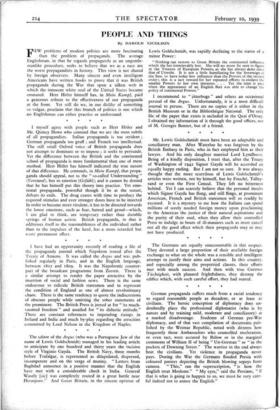The editor of the Argus (who was a Portuguese Jew
of the name of Lewis Goldsclunidt) managed in his leading article to anticipate by one hundred and thirty years the incisive style of Virginio Gayda. The British Navy, three months before Trafalgar, is represented as dilapidated, dispersed, incompetent and on the verge of mutiny. "Letters from Baghdad announce in a positive manner that the English have met with a considerable check in India. General Wasely [sic] was completely routed in a great battle near Hera tpoor." And Great Britain, in the sincere opinion of Lewis Goldsclunidt, was rapidly declining to the status of a minor Power: "Nothing can restore to Great Britain the continental influence which she has irretrievably lost. She will no more be seen to figure in the Treaties of European Powers, as she has always done since that of Utrecht. It is not a little humiliating for the Sovereign of the Seas to have today less influence than the Powers of the second order ; this is a just reward for her repeated efforts to enslave the smaller Powers to her own interests. . . . Yet the time is past when the appearance of an English fleet s%as able to change the policy of continental Powers."
I recommend to " jitterbugs " and others an occasional perusal of the Argus. Unfortunately, it is a most difficult journal to peruse. There are no copies of it either in the British Museum or in the I3ibliotheque National. The only file of the paper that exists is secluded in the Quai d'Orsay. I obtained my information of it through the good offices, not of M. Georges Bonnet, but of a friend.














































 Previous page
Previous page